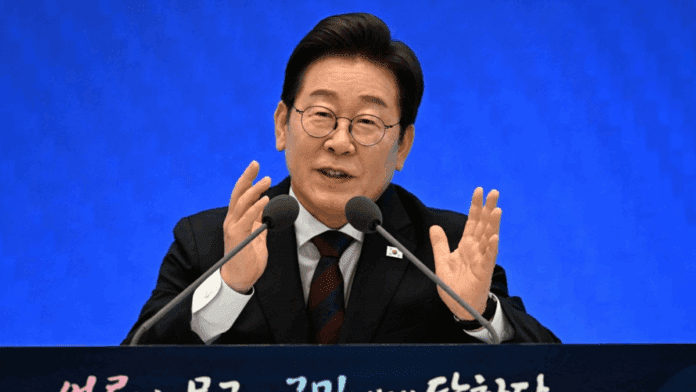South Korean President Lee Jae Myung said that it’s still unclear whether his country can strike a trade deal with the United States before the deadline set by U.S. President Donald Trump.
South Korea’s President Raises Doubts Ahead of Tariff Deadline
The two countries are currently locked in difficult tariff talks, with just days left before Trump’s 90-day pause on new trade duties expires on July 9.
Speaking at his first news conference since taking office last month, Lee said both governments are still working to clarify their positions. He added that reaching an agreement by July 8, the final day for talks, is not guaranteed.
“We are now doing our best,” Lee said. “But it’s difficult to say with certainty whether we will be able to reach a conclusion.” He emphasized that the outcome must be fair and beneficial to both nations.
If talks fail, South Korean exports such as cars and semiconductors may face up to 25% tariffs—posing a serious threat to the country’s trade-driven economy. U.S. negotiators are also pushing for higher duties on specific products, raising concerns in Seoul about long-term economic impacts.
China Willing to Revisit Tariffs, Subsidies in WTO Negotiations with US
Lee Faces Pressure from Trump’s Demands and Domestic Issues
President Trump’s “America First” approach is presenting one of the biggest early challenges for Lee Jae Myung’s administration. The U.S. has not only demanded higher tariffs but is also reportedly considering asking South Korea to contribute more financially toward the 28,000 American troops stationed there.
Trade Minister Yeo Han-koo is preparing to travel to Washington for possible meetings with U.S. Trade Representative Jamieson Greer and Commerce Secretary Howard Lutnick. Their goal is to negotiate a deal before the deadline, but Lee has cautioned against rushing.
“We need a truly reciprocal outcome,” Lee said, explaining that a deal made too quickly could end up harming both sides.
Lee came to power after a snap election, following the removal of former President Yoon Suk Yeol, who was ousted over a controversial martial law order. Now, Lee is tasked with repairing not only foreign trade ties but also navigating deep political and economic challenges at home.
Trump to Japan: Buy Our Rice or Face 25% Tariffs
Lee Seeks Peace With North Korea, Despite Tensions
Alongside the trade dispute, Lee addressed another major issue: North Korea. He repeated his campaign promise to improve relations with Pyongyang, though he admitted that trust between the two Koreas is “too serious” to repair quickly.
His government has already halted anti-North Korea broadcasts and is working to stop activists from flying leaflet-filled balloons across the border. These actions are seen as efforts to reduce tensions.
Lee said he would support renewed diplomacy between Trump and North Korean leader Kim Jong Un. Trump has previously expressed a desire to re-engage in talks with Pyongyang, though North Korea has not responded to either leader’s latest gestures.
Tensions remain high as North Korea continues to strengthen ties with Russia. Officials say Pyongyang is now sending weapons and troops to help Russia in its war against Ukraine, in return for military and economic aid.
While hopes for peace remain, South Korea’s new president is balancing complex relationships—with North Korea, the United States, and his own people—under intense pressure.
